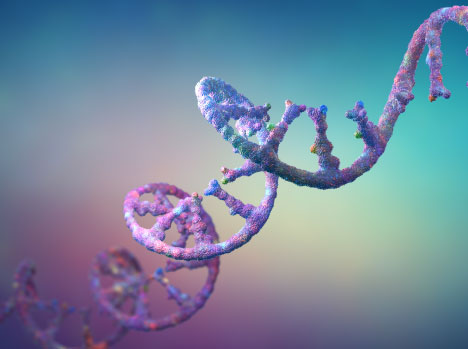In 12 patients, the mean decrease at six months in a 60-point measure of myasthenia gravis disease activity — known as the Myasthenia Gravis Composite score — was greater than six points, the biotech said Tuesday morning. At the six-month mark, four out of 12 participants were observed to have minimum symptoms, according to Cartesian. Two responder patients from the primary analysis were lost to follow-up.
The company also reported that it retreated three patients, two of whom have minimum symptoms two years after first receiving treatment. The third patient was retreated more recently and had a six-point improvement on their MGC score two months after retreatment.
“Targeted therapy over the last five years, six years, while very gratifying and transformational, still require multi-dosing on an ongoing basis in order to maintain effect,” James Howard, the lead investigator from the University of North Carolina School of Medicine, said during an analyst call. “The ability to treat our patients so infrequently and still maintain quality of life and prolonged duration of effect is exceptionally gratifying.”
Back in July, Cartesian announced that the Phase 2b study hit its primary endpoint, with 10 of 14 patients achieving at least a five-point improvement in their Myasthenia Gravis Composite score. By comparison, only three of 12 in the placebo group achieved that improvement.
The biotech is now planning its pivotal Phase 3 study, which it calls AURORA. The study will enroll approximately 100 patients with myasthenia gravis who have blood test results showing the presence of certain autoantibodies. Cartesian expects to begin the trial in the first half of next year.
Other companies like Kyverna Therapeutics and Cabaletta Bio are developing CAR-T cell therapies for myasthenia gravis amid burgeoning interest in the autoimmune cell therapy field. Unlike Cartesian, their treatment regimens are more similar to conventional CAR-T therapies in that they require preconditioning chemotherapy and can potentially lead to immunotherapy-related side effects.
Outside of cell therapy approaches, the myasthenia gravis category has become competitive as well, with companies like argenx, UCB, Johnson & Johnson and Immunovant either marketing new treatments or developing drugs for the disease.

Check out our mRNA service to expedite your vaccine research
PackGene Biotech is a world-leading CRO and CDMO, excelling in AAV vectors, mRNA, plasmid DNA, and lentiviral vector solutions. Our comprehensive offerings span from vector design and construction to AAV, lentivirus, and mRNA services. With a sharp focus on early-stage drug discovery, preclinical development, and cell and gene therapy trials, we deliver cost-effective, dependable, and scalable production solutions. Leveraging our groundbreaking π-alpha 293 AAV high-yield platform, we amplify AAV production by up to 10-fold, yielding up to 1e+17vg per batch to meet diverse commercial and clinical project needs. Moreover, our tailored mRNA and LNP products and services cater to every stage of drug and vaccine development, from research to GMP production, providing a seamless, end-to-end solution.
Related News
[2024/12/20] Gene and Cell Therapy- weekly digest from PackGene
FeaturedNewsArticlesPackGene's NewsletterReceive the latest news and insights to your inbox.About PackGenePackGene Biotech is a world-leading CRO and CDMO, excelling in AAV vectors, mRNA, plasmid DNA, and lentiviral vector solutions. Our comprehensive offerings span...
Sangamo and Astellas Collaborate to Advance Neurological Gene Therapies Using AAV Capsid Technology
Sangamo Therapeutics, Inc. (Nasdaq: SGMO), a leader in genomic medicine, and Astellas Pharma Inc. (TSE: 4503), a global innovator in life sciences, have partnered under a new license agreement. This collaboration centers around Sangamo’s cutting-edge neurotropic AAV...
Inceptor Bio and GRIT Bio Announce Strategic Partnership to Advance IB-T101, a Next-Generation Solid Tumor CAR-T Utilizing the OUTLAST™ Platform
SHANGHAI and MORRISVILLE, N.C., Dec. 18, 2024 /PRNewswire/ -- Inceptor Bio, a leading innovator in cell therapy, and GRIT Bio, a clinical-stage immunotherapy developer, today announced a strategic partnership to advance IB-T101, a potentially best-in-class CAR-T...
Proof-of-concept study bioengineers therapeutics for improved cancer treatment
Credit: Pixabay/CC0 Public DomainA team of Children's Medical Research Institute (CMRI) scientists has identified a new method for producing a therapeutic product that has the potential to improve the treatment of cancer. The work by Associate Professor Leszek...
Related Services

AAV Packaging Services
READ MORE

Off-the-Shelf AAV Products
READ MORE

